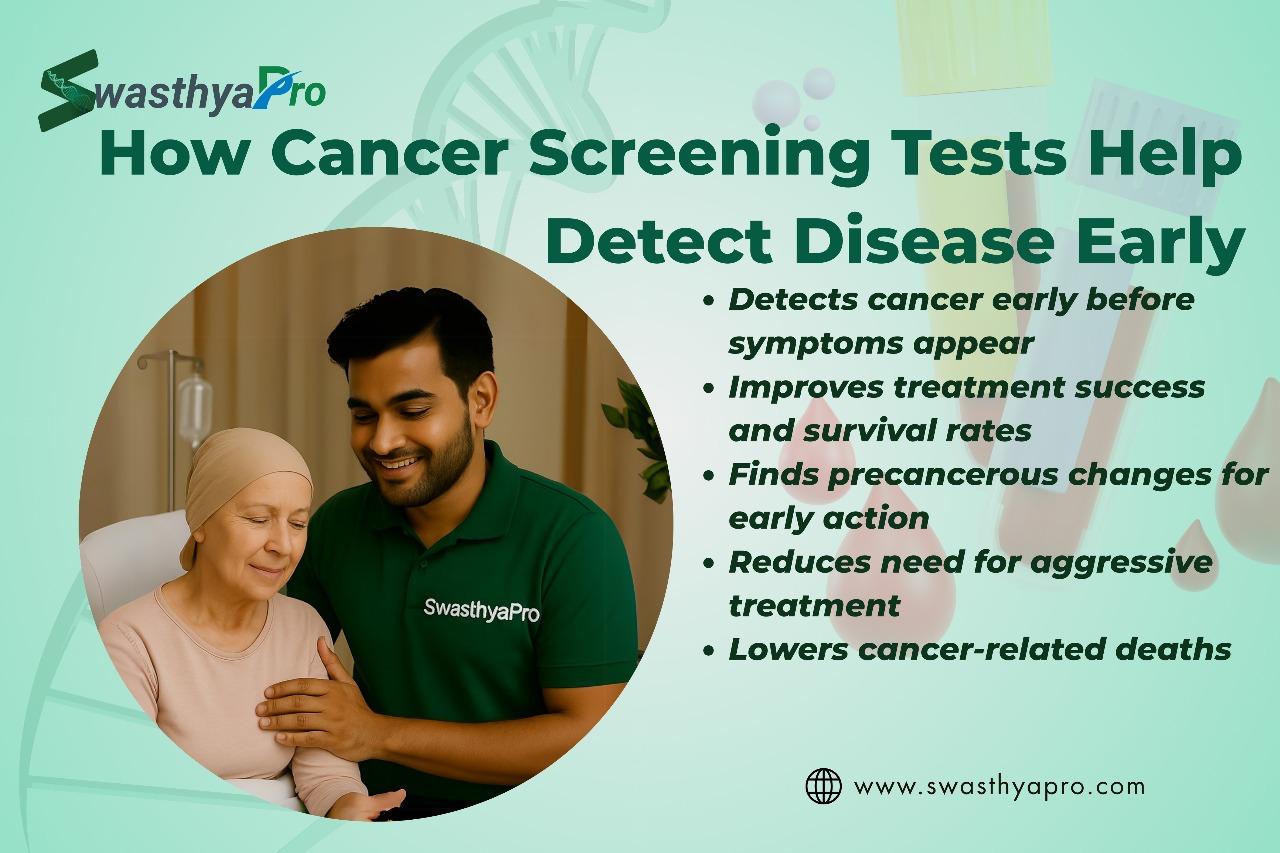How Cancer Screening Tests Differ for Smokers, Drinkers, and High-Risk Individuals

Not everyone needs the same Cancer Screening Tests at the same time. Your lifestyle, habits, and family history can affect which tests you need, when you need them, and how often.
If you’re a smoker, regular drinker, or have a family history of cancer, your screening guidelines may look very different from someone with no known risks. You might need to start earlier, test more often, or get additional tests not recommended for the general public.
This article breaks down how Cancer Screening Tests differ for high-risk people, so you can take control of your health with the right information.
First, What Does “High-Risk” Mean?
You’re considered high-risk for certain cancers if:
-
You smoke or have smoked heavily in the past
-
You drink alcohol regularly, especially in high amounts
-
You have a family history of cancer (especially in close relatives)
-
You have certain genetic conditions (like BRCA mutations)
-
You’ve been exposed to carcinogens (asbestos, radiation, etc.)
-
You’ve had previous cancer or pre-cancerous conditions
Being high-risk doesn’t mean you will definitely get cancer — but it does mean you need to stay ahead with the right Cancer Screening Tests.
1. Cancer Screening Tests for Smokers
Smoking increases your risk for lung, throat, mouth, bladder, cervical, and even pancreatic cancer. If you currently smoke or used to, talk to your doctor about these:
Low-Dose CT Scan – Lung Cancer
-
Who: Adults aged 50–80 with a 20+ pack-year smoking history
-
How often: Once a year
-
Why: This Cancer Screening Test can detect lung cancer early — before symptoms appear.
Oral and Throat Exam
-
Who: Smokers of any age
-
How often: Every 6–12 months during dental visits
-
Why: Smoking increases the risk of mouth and throat cancers. This Cancer Screening Test is visual and fast.
Bladder Cancer Tests (in some cases)
-
Who: Long-term smokers or those with symptoms (blood in urine)
-
How often: Based on symptoms or doctor recommendation
-
Why: Smoking is a major risk factor for bladder cancer.
2. Cancer Screening Tests for Regular Drinkers
Heavy drinking over time raises the risk of liver, throat, esophagus, breast, and mouth cancer. These Cancer Screening Tests are especially important:
✅ Oral and Esophageal Exams
-
Who: Anyone who drinks heavily (especially with smoking)
-
How often: Every year or during dental checkups
-
Why: Alcohol irritates the lining of your mouth and throat, increasing cancer risk.
Liver Ultrasound or Blood Tests
-
Who: Chronic drinkers with liver issues or hepatitis
-
How often: Annually, if liver damage is present
-
Why: Early liver cancer can be caught with imaging or liver function blood tests.
Mammogram – Breast Cancer
-
Who: Women aged 40+, especially those who drink regularly
-
How often: Every 1–2 years
-
Why: Alcohol raises estrogen levels, increasing breast cancer risk. This Cancer Screening Test is crucial for early detection.
3. Cancer Screening Tests for People with Family History
If your parents, siblings, or other close relatives have had cancer — especially at a young age — you may need earlier or more frequent screening.
Genetic Testing + Earlier Screening
-
Who: Anyone with a strong family history of cancers like breast, ovarian, colorectal, or prostate
-
How often: Based on genetic results and risk score
-
Why: Inherited gene mutations like BRCA1/2 or Lynch syndrome raise cancer risk significantly.
For example:
-
You may need mammograms starting in your 30s instead of 40s
-
You might start colonoscopy screenings at 35 or 40 instead of 45
-
PSA testing for prostate cancer may start at 40 instead of 50
Doctors use your family history to create a personalized Cancer Screening Test plan just for you.
4. Other High-Risk Groups to Consider
-
People with HPV: Need more frequent Pap smears or anal cancer screening
-
People with HIV: May require earlier or more frequent cervical and anal Cancer Screening Tests
-
People exposed to radiation or chemicals: Might need unique scans or lab tests
Key Differences in Screening for High-Risk Groups
| Risk Factor | Changes in Screening |
|---|---|
| Smoking | Add lung, oral, and bladder screenings; start earlier |
| Drinking | Focus on oral, liver, and breast screenings |
| Family History | Begin tests earlier; genetic testing recommended |
| Genetic Mutations | Special screening plans based on test results |
Final Thoughts
Being high-risk doesn’t mean being helpless. In fact, it means you have more reason to act early and stay informed. A Cancer Screening Test is not just about catching illness — it’s about owning your health.
Talk to your doctor. Share your habits honestly. Build a screening plan based on your personal risks — not just general guidelines.
Because when cancer is caught early, it’s not a sentence — it’s a second chance.
And that chance starts with the right Cancer Screening Test — at the right time.
- Art
- Causes
- Best Offers
- Crafts
- Dance
- Drinks
- Film
- Fitness
- Food
- Spellen
- Festival
- Gardening
- Health
- Home
- Literature
- Music
- Networking
- Other
- Party
- Religion
- Shopping
- Sports
- Theater
- Wellness



